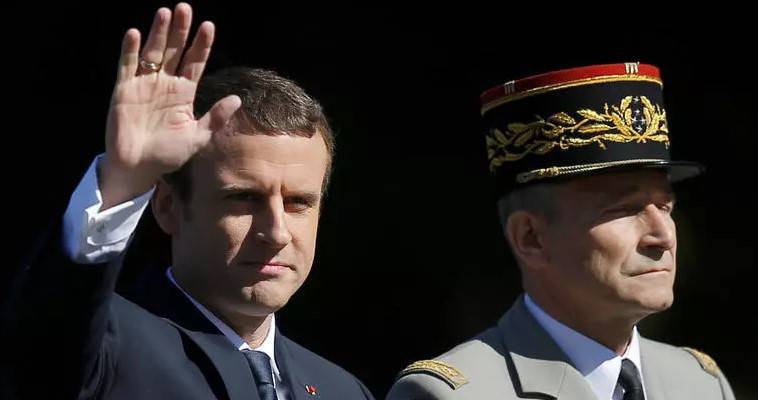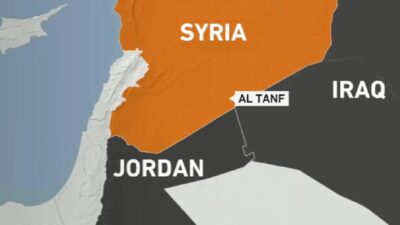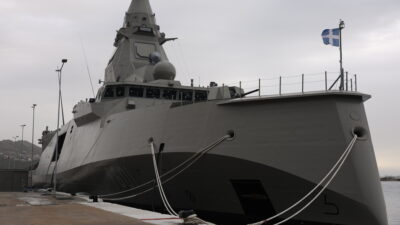Efthymios Tsiliopoulos: Internal unrest undermines France’s intervention in the Mediterranean
27/06/2020
Many see France’s growing role in the Eastern Mediterranean as a counterbalance to the growing arbitrariness and outrageous provocations of the Turkish regime. Turkey’s latest challenge, the targeting of a French frigate by ships of the Turkish navy, drew the ire of the French president, who announced a harsh reaction, such as complaints to NATO!
The largest naval force in the Mediterranean, therefore, decided to follow a diplomatic path, as did a comparatively weak Greece. Defense Secretary Florence Parley raised the issue with NATO, and Secretary-General Jens Stoltenberg told a news conference that the incident came at a meeting of ministers from several member states. “My message is that we have ensured that NATO military authorities are investigating the incident to fully clarify what happened.”
That is, the end result was nothing. A commission of inquiry and distancing from the tasteless, odorless and colorless Jens Stoltenberg, which caused mirth in Ankara. But how did we come to France retreating in the face of the “Sultan’s” most daring challenges?
The pandemic has led France to a recession since 1949. Compared to the previous year, French GDP fell 5.8% in the first quarter of 2020. The OECD predicts that France could lose 14% of its GDP this year. In that case, it would be the biggest drop among the world economies.
The recession is accompanied by a sharp rise in unemployment. The number of temporarily registered unemployed, 80% of whose salary is paid by the state, has exceeded 12 million. This represents almost half the working age population! According to the French state employment service (Pôle emploi), the unemployment rate rose by 22% in April compared to March, when it was 843,000.
A lag in internal security
Although the French government is aware of the need to resume economic activity and lift quarantine measures, it is facing more challenges. Even before the quarantine was lifted, France was shaken by a wave of protests that had stopped due to the pandemic. Protests rocked the cities of Lille, Marseille, Lyon, and riots erupted in Clissy, Paris, from the first day of the lifting of the quarantine (June 3).
Meanwhile, protests by workers are being augmented by protests staged by the Truth for Adama committee. The committee was set up by Assa Traore, the sister of a young black man Adama, who died in custody after his arrest in 2016. As of late, and on the occasion of racial tensions in the United States, efforts are being made to mobilize the French-African community for the French “Floyd”.
The protests are accompanied by vandalism and clashes with police. There have been acts of desecration of Charles de Gaulle’s monuments in Haumont and in Pavillion-sous-Bois near Paris. The general’s busts were painted orange and inscribed “slaver” despite the fact that de Gaulle in the late 1950s, overcoming the resistance of the far right, began the decolonization, which led to the independence of many African countries (Algeria, Senegal, Mali, etc.).
The demonstrations had their own impact on the security forces. Police unions protested Interior Minister Christophe Castaner’s statement that “emotions exceed the rules of law”, which demanded that police officers be relieved of their duties “with the slightest suspicion” of overstepping their authority. This acted as a damnation for the trade unionists, who believe that the police are being subjected to arbitrary accusations of racism and violence. In several French cities, police in riot gear stormed a rally on Friday, removing hundreds of protesters by truck.
Racial and gang violence
The Left continues to denounce police and security forces for racism and reckless use of force, reviving past cases of such incidents. The situation has contributed to the development of arbitrariness in France. As race-related unrest continues in Paris, mass clashes between migrants from Maghreb and Chechnya continued for more than a week in Dijon, the capital of Burgundy.
The riots began with a clash at a cafe when Algerian migrants hit a 16-year-old Chechen youth, probably after a dispute over drug trafficking. The clash led Chechen immigrants to call through social media to punish Algerians. The calls sparked a mass influx of Chechens into Dijon.
On the afternoon of June 15, unrest broke out, which led to the looting and theft of property of African origin immigrants by the Chechens. In the meantime, however, Arabs armed with Kalashnikovs and pistols have gathered in the city, unlike Chechens who have been limited to crowbars, knives and bats.
Is the situation manageable?
On Sunday, June 14, three Chechens were wounded by gunfire during clashes in Nice. Similar small-scale clashes have taken place in Nice, Toulouse and elsewhere. Clashes between the Chechens and Arabs from Maghreb have escalated as the former found shelter in degraded areas next to the Africans. The latter viewed them with suspicion, as they intervened in areas with their own unwritten laws, in which the police did not dare to intervene.
Immigration from the Maghreb is a direct result of the end of colonialism in Morocco and Tunisia in 1956 and in Algeria in 1962. Immigrants, mainly from Algeria, have formed a solid nucleus in France, making it the largest Arab-speaking community in Europe, numbering more than 5,000,000 people.
The Chechen community in Europe, especially in France, Germany and Belgium, is significantly smaller. It was created in the late 1990s and early 2000s. They emigrated after the Second Chechen War. The largest number lives in the eastern part of France and numbers more than 20,000 people.
The role of Islam
The confrontation between the two communities comes at a time when the French public order system has been weakened. Today, both Arabs and Chechens are trying to expand the conflict, forcing as many people as possible to take to the streets. The riots are being fueled by videos on fake accounts being posted on the internet. Some show the distribution of weapons while others depict graffiti praising Putin, Russia and Chechen dictator Kadyrov.
So far, the Chechens and Arabs have stopped fighting directly, but they are exhibiting the possibility of violence. Police believe that the unbridled violence, if it breaks out, will clear up the landscape. Otherwise, one can not explain that after the injuries of 10 people, only four arrests have been made, despite the fact that two additional special units were sent to Dijon.
It is possible that the voices of religious polarization may be heard louder, which in this case may be a unifying, and not divisive, force as both communities are mostly Sunni. Chechens were among the most powerful jihadist leaders in Syria, Iraq and Afghanistan, with Western services looking for jihadists with the nickname “al-Sisani” (Chechen). Minority immigration groups in France obviously have easy access to modern weapons, through networks from the Balkans (Kosovo, Albania), but also from networks in North Africa.
The climate is not conducive to adventures in the Mediterranean
French authorities are expecting more and more mass demonstrations, which may lead to the mass participation of migrants who have been ghettoized and who feel the system is hostile towards them. In such a case, racial flare-up will lead to a wave of violence, with unknown consequences. If the voices calling for mass demonstrations in the Adama case resonate the riots may overshadow the incidents of 2005.
Meanwhile, the French Left is calling for mass rallies, although the response so far is not as expected, possibly due to fear of the coronavirus. At a time when there is a drop in morale iamong French security forces and with political elites are asking them to reduce repression, the reactions will be anemic. At the same time, Emmanuel Macron’s sliding popularity, in contrast to the growing popularity of Prime Minister Edouard Philippe, is alienating citizens from any foreign policy plans the president may have.
Macron’s machinations to oust Philippe could result in a protracted government crisis and a further decline in his popularity. The deteriorating economy, due to the pandemic, may be disproportionately affecting minorities, but it is troubling the entire population, leaving internal problems at an explosive point. In this climate, any external “adventure” can hardly be communicated effectively, while the interests of France in Libya and the Eastern Mediterranean are not understood by the French.





